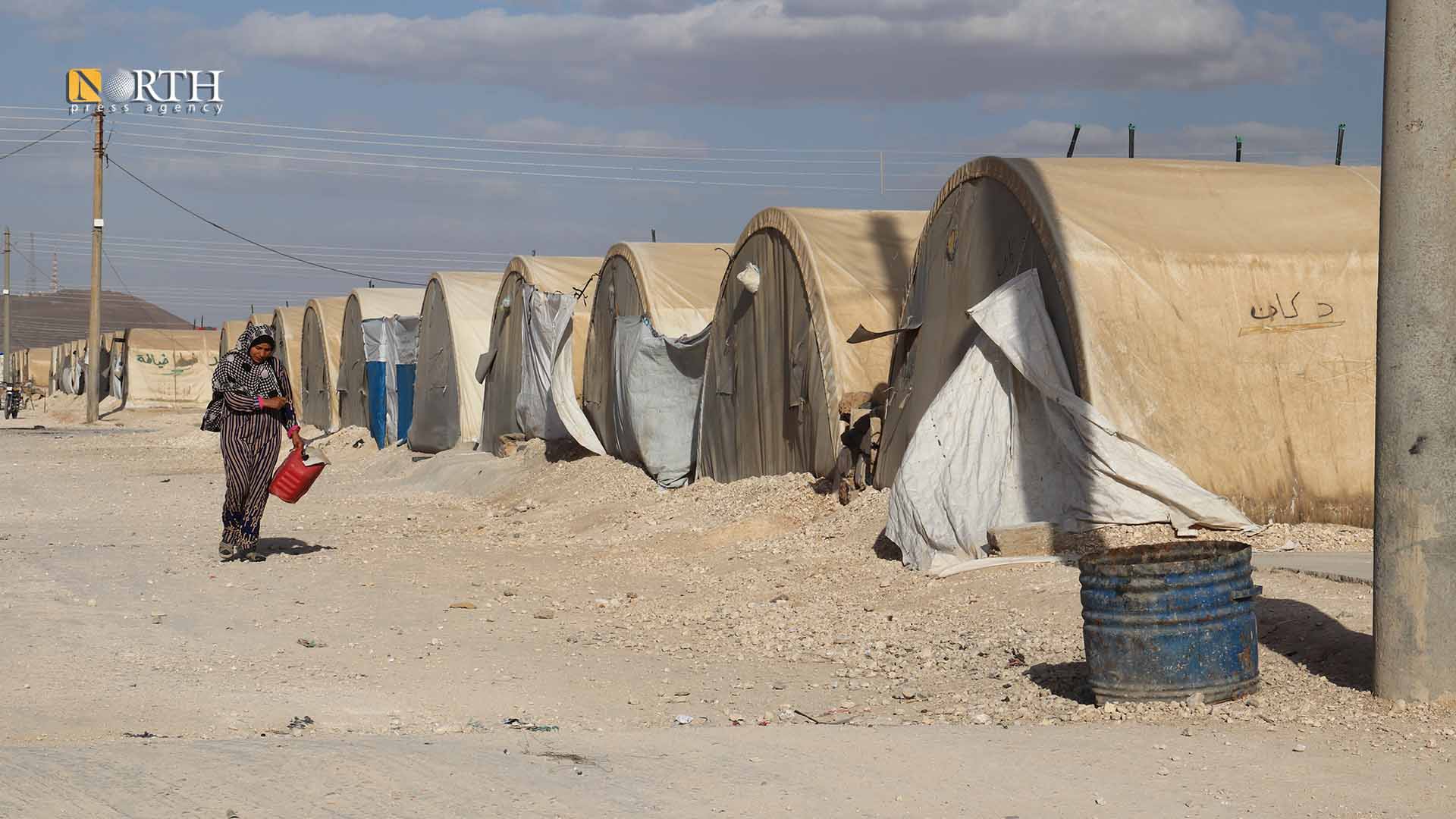HASAKAH, Syria (North Press) – As she lacks most of what she used to have at home, the 46-year-old Khatar al-Ahmad, an IDP in the Sere Kaniye Camp east of Hasakah, cannot make the meals she and her family desire during the holy month of Ramadan due to the hard living conditions that force them to count on what they have of the food provided by humanitarian organizations.
“We spend Ramadan without proper nutrition, eating only rice, bulgur, lentil and beans,” the IDP, who hails from Sere Kaniye, told North Press.
“I’m running out of oil and legumes; for vegetables and meat, we cannot even think of them because they are expensive,” added the woman feeling sorry for their situation in the camp.
The IDPs in Sere Kaniye Camp are living hard economic conditions, which have worsened as prices doubled with the start of Ramadan amid shortage of the humanitarian organizations aid.
Prior to displacement, they used to have meals with different types of dishes during the holy month of Ramadan, but the IDPs now don’t have a choice but to rely on the food baskets provided by humanitarian organizations every two months to make their iftar.
The Sere Kaniye Camp, which is a house for about 2,340 families, was established on September 8, 2020 to inhibit IDPs who were previously staying in schools in Hasakah city following the Turkish invasion of Sere Kaniye and Tel Abyad in 2019.
In the same camp, conditions of the 48-year-old Suha Kheleif don’t differ from those of al-Ahmad as she is, also, unable to buy vegetables, which are “obscenely” expensive in light of their limited income, making her family unable to offer for a simple dish of salad since the beginning of Ramadan.
“Before Ramadan, we used to have two meals instead of three due to bread shortage,” Kheleif said.
“If we had lunch, we wouldn’t be able to have dinner because no bread was left.”
The shortage of the humanitarian organizations’ aid makes the IDPs’ situation even harder, as the food baskets don’t cover their needs for more than two weeks, especially that they rely on it on a daily basis.
Moreover, since the onset of the Russia-Ukraine war in February 24, the organizations reduced the amount of cooking oil they give to the IDPs, according to the camp management.
The camp’s co-chair, Yalmaz Ibrahim, said that the aid given by the humanitarian organizations had significantly decreased after the Russia-Ukraine war.
The IDPs don’t get the needed support, prompting some of them to sell their food baskets to cover more necessities like medications and clothes.
Despite holding discussions with some organizations over increasing the support, especially oil, sugar and the camp’s allocations of water, no response has been made.
The 36-year-old Mona Ismael, an IDP from northern Hasakah, cannot buy food for her children, and finds difficulty to circumvent their demands.
“We suffer in light of the high prices of vegetables during Ramada,” Ismael said.
Ismael, a mother of four children, added that “the high prices of vegetables are really strangling us, we don’t have a stable income and we don’t receive dollars.”

